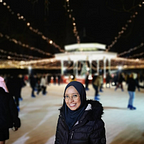Muslim Women Scholars: 10,000 Biographies Capturing 1000 Years of Lost History
By Arzoo Ahmed
As we celebrate their achievements and recognise the struggles of women this International Women’s Day, women’s history month this March calls on us to remember the contributions of women throughout history.
We know that the past can inspire the present, but what if the past is not known, or is distorted, and known differently to what it was? History is mostly written and overshadowed by men, with women recorded as their intellectually inferior counterparts, having played little role in producing knowledge and ideas. Women’s histories are difficult to locate not just in religion, but in science, philosophy, politics, and beyond; not because women were absent, but because their contributions were not recorded, or even, as some may argue, excluded.
The absence of women’s scholarly contributions presents an all too familiar vacuum within Muslim societies, where the pinnacle of Islamic scholarship and intellectual or spiritual authority is still seen as the preserve of a male elite. When asked about women scholars, past or present, we struggle to name but a few, barely extending beyond the women who surrounded the Prophet, notably his family and close companions. The canons studied within most Muslim seminaries and in the madrasa consist of religious texts authored exclusively by men. Chains of hadith transmission, linking narrators in each generation to their predecessors uninterruptedly back to the Prophet, reel off the names of male narrators.
Is this male-centric narrative the complete story of Islamic scholarship?
Whilst we may have been led to believe that this was the status quo, the record tells us otherwise.
In January 2021, over twenty years of research by Dr Mohammad Akram Nadwi from Oxford culminated in the publication of a 43-volume biographical encyclopaedia, titled ‘Al-wafa bi-asma an-nisa’ (also known as al-Muhaddithat — the female hadith transmitters). This ground-breaking collection reilluminates the lost history of Muslim female scholarship and contains over 10,000 biographies of Muslim women who engaged with learning, teaching, and transmitting hadith, and captures their teaching journeys across sea and desert over the last 1000 years. Whilst the published work is in Arabic and yet to be translated into English, there is an introductory preface titled ‘al-Muhaddithat’ available for readers in English, Urdu, Turkish, Bosniak, and soon to be published in French.
The encyclopaedia is a treasure trove of stories that will challenge and move the historical imagination of the reader. Let us briefly step into the past which the pages of this collection reilluminate. In 12th century China, Fatimah starts her scholarly journey at the age of four, under the tutelage of her father, Sa’ad al-Khayr. She journeys from the Far East, stopping at Samarkand, Bukhara, Merv, Tus, Nishapur, and Rayy for her studies until she reaches Isfahan, where she learns with the renowned scholar Fatimah al-Juzdaniyyah. Fatimah’s journey traversed over 3000 miles, in a time when the only means of travel was camel or horseback, and she established a successful teaching career in Baghdad.
Another 12th century scholar, Zaynab bint al-Kamal taught more than 400 books of hadith, and with her towering intellectual reputation, she taught in some of the most prestigious academic institutions in Damascus. The 13th century Baghdadi scholar, Ibn al-Najjar, noted in his works that he had 400 female teachers.
In the eighth century, Amrah bint abd al-Rahman intervened in a court case in Medina and prevented a miscarriage of justice by presenting textual evidence which forced the judge to overturn his decision, without requiring a second opinion. With all the controversy that surrounds reports on the unequal status of women in Islam, we see examples in the formative years of Islam, when a woman’s testimony was given equal, and sometimes more worth, than that of their counterparts.
In her book, Women and Power, Mary Beard traces the deep roots of silencing women stretching as far back as Ancient Greece and discusses the ways in which this practice crept into the political corridors of the recent past. She includes a quote from the second-century AD, which dictates that ‘a woman should as modestly guard against exposing her voice to outsiders as she would guard against stripping off her clothes.’ Accounts of Muslim women’s active contributions dating back 1000 years in a culture defined by an oral tradition become ever more fascinating against this historical backdrop of silencing women, which sought to systematically remove women’s voices from the public sphere.
Women in Islam were integral and active in its history, in the formation, preservation and transmission of knowledge. Women gained prominence through their pursuit of seeking knowledge, and gave religious instruction to men and women, from established positions in prestigious mosques and colleges, as well as in private settings. The story of Islamic scholarship is a story of men and women, in which women were left unacknowledged. In his seminal work on the politics of recognition, Charles Taylor observes that, “nonrecognition or misrecognition can inflict harm, and can be a form of oppression.” We may consider historical nonrecognition as a form of such harm, for it has taken away the entire past from women across multiple domains of society.
On a more hopeful note, the tide is turning. Women’s stories are being excavated. Last year, the publication of the Philosopher Queens started the movement to place women back into philosophy. Dr Nadwi’s encyclopaedia takes monumental strides towards placing women back into the history of religious scholarship. Women aren’t just making history, they made history. We need to continue to rediscover, rewrite and take ownership of that history, to give the women of the past the space and power to change our present.
For more information on this project, visit www.muslimwomenhistories.org or follow @WomensHistories on Twitter.
Arzoo is Publication Manager for al-Muhaddithat and founder of Muslim Women Histories. She has degrees in Physics (BA) and Medieval Arabic Thought (MPhil) from the University of Oxford, and an ‘Alimiyyah degree from Al-Salam Institute. Arzoo is a Researcher at the Nuffield Council on Bioethics.
